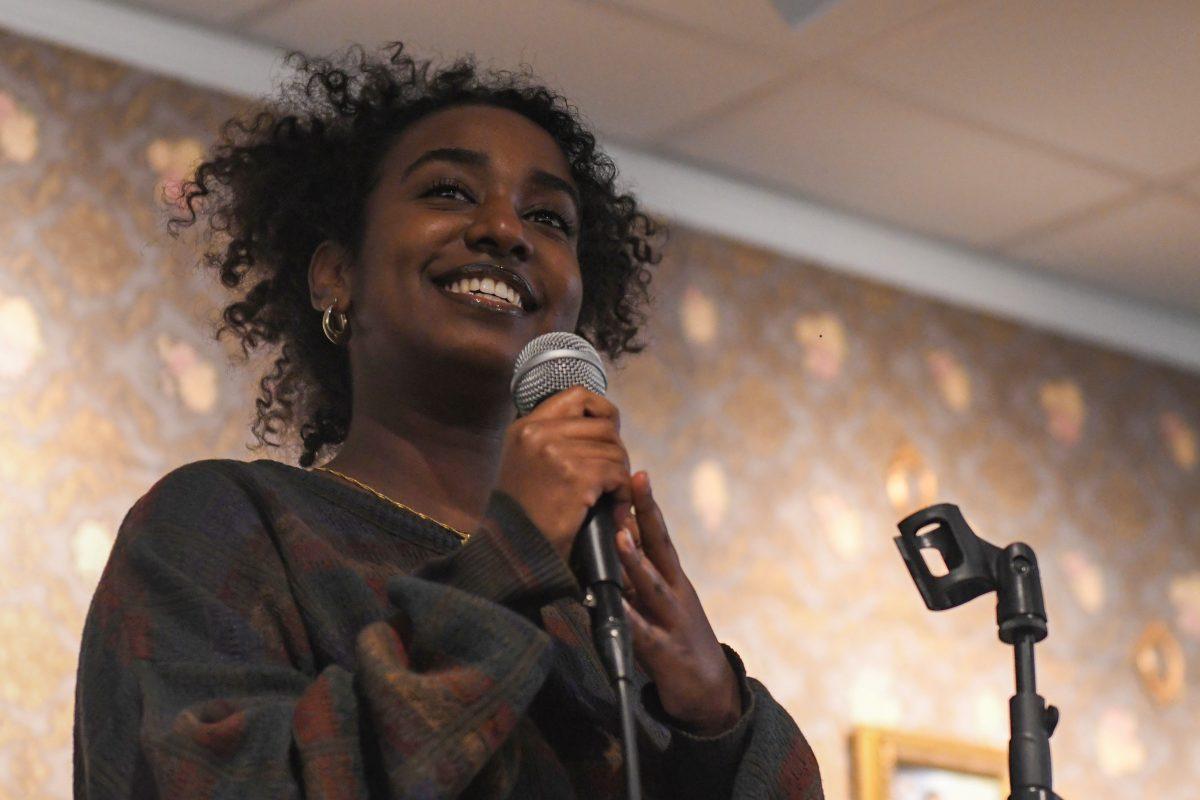The African American Cultural Center brought the “29 Days of Healing: Black Book Blitz Exhibit” to a close on Thursday through an open mic event featuring spoken word, singing and rap.
Nick Courmon, a spoken-word artist featured as the event’s opener, performed four poems inspired by his personal experiences and the movie “Precious.” The audience engaged with the performance, nodding or snapping in agreement, laughing at Courmon’s humor and tearing up during somber moments.
Courmon reflected on Black History Month and said he hopes Black history is not restricted to just one month of the year. However, he said he does recognize the significance of the month and grew up loving the time for celebration and storytelling.
“I think that this month, in particular, February of 2024, has been a special one, just as I think every Black History Month normally is,” Courmon said. “But you know, like just being able to just come to NC State and celebrate … my culture, my history, especially with the younger students has been [very] exciting and very humbling.”
Several other students performed during the event, focusing, along with the featured books in the exhibit, on Black healing. African American Cultural Center programming intern Mastewal Bailey, a third-year studying marketing and international studies, helped plan the event and felt a personal connection to the performances.
“So the theme was Black spirituality and healing, and I feel like music and poetry is something that is very personal and it gets you through the hard times,” Bailey said. “So [with] an open mic, we have different styles of performance, but a majority of it is through spoken word.”
Kayla Patterson, a graduate student studying parks, recreation and tourism management, volunteered at the event and expressed her excitement about being more involved with the African American Cultural Center, especially during Black History Month.
“It just is a time to celebrate our history and our culture,” Patterson said. “You should do that all year, just saying.”
Patterson said she thought that the University could improve on representation for students of color. Bailey echoed similar sentiments and thought there could be more promotion for Black History Month events.
“I feel like NC State supports all the Black History Month initiatives,” Bailey said. “However, it could do better in like, promoting it throughout the campus because I feel like a lot of our events were smaller because it wasn’t advertised as well throughout the campus.”
Courmon also shared his feelings on the inclusion of Black history in education, especially in curriculum, drawing attention to topics such as diversity, equity and inclusion and critical race theory, which have been contested topics in school districts in recent years.
“[T]here’s a lot of restrictions being placed on curriculum that is centered around, like African American History and curriculum, you know, that addresses a lot of the ills that have been done to Black folks in America,” Courmon said. “We still have to remember that you know, like, that is still American history no matter how we want to, you know, color it. No matter how we want to like phrase it or dance around it, like, Black history is American history.”
Although the African American Cultural Center has wrapped up its Black Book Blitz Exhibit, information on future events and exhibits can be found on its website.













